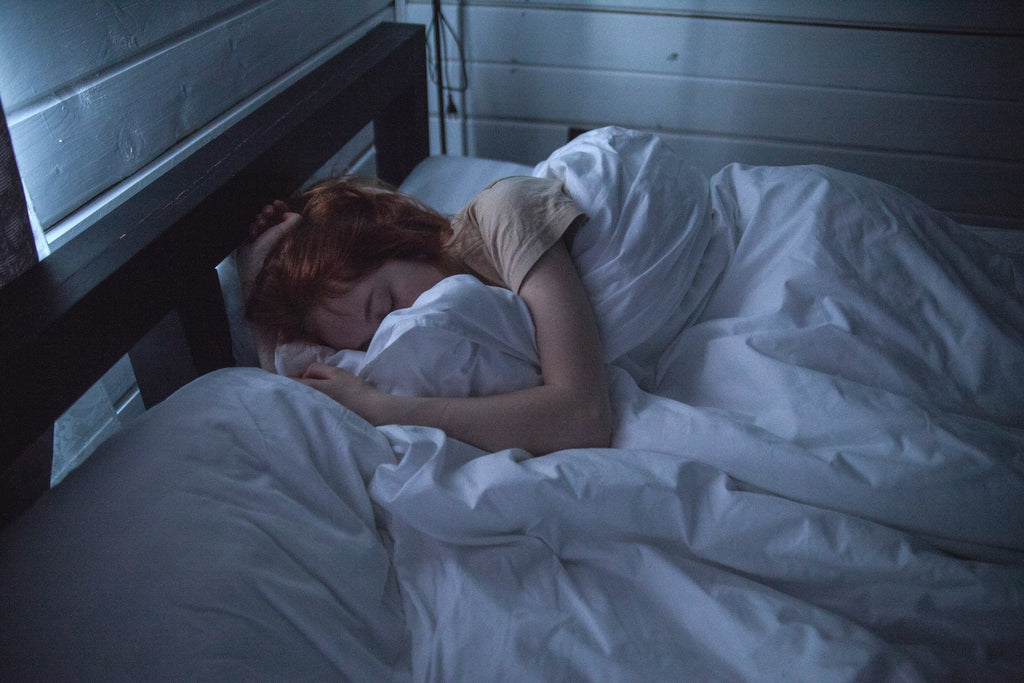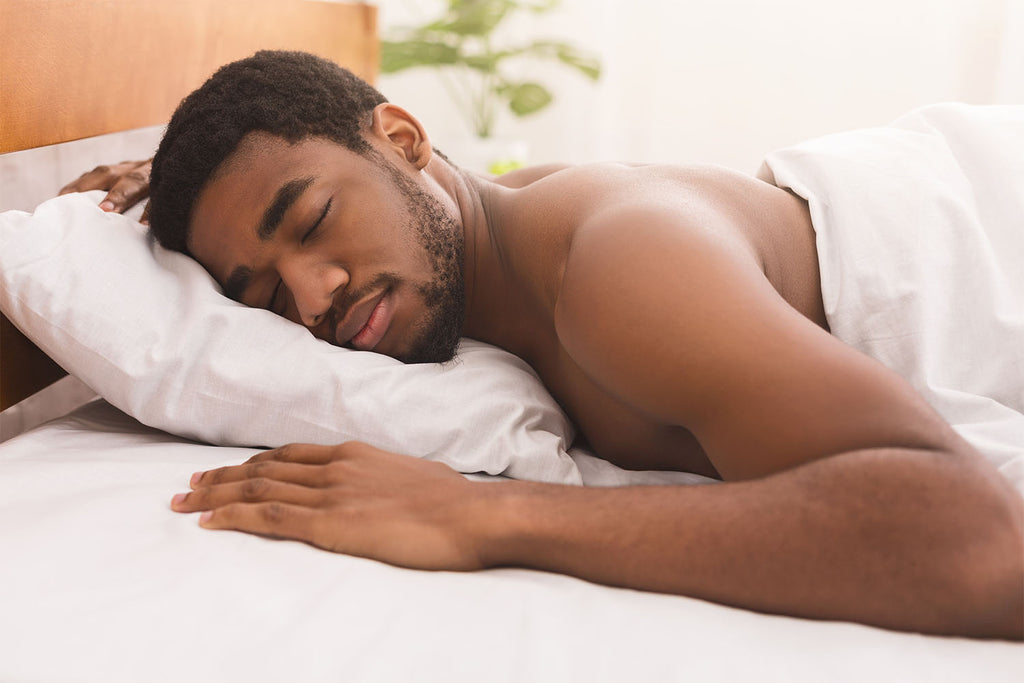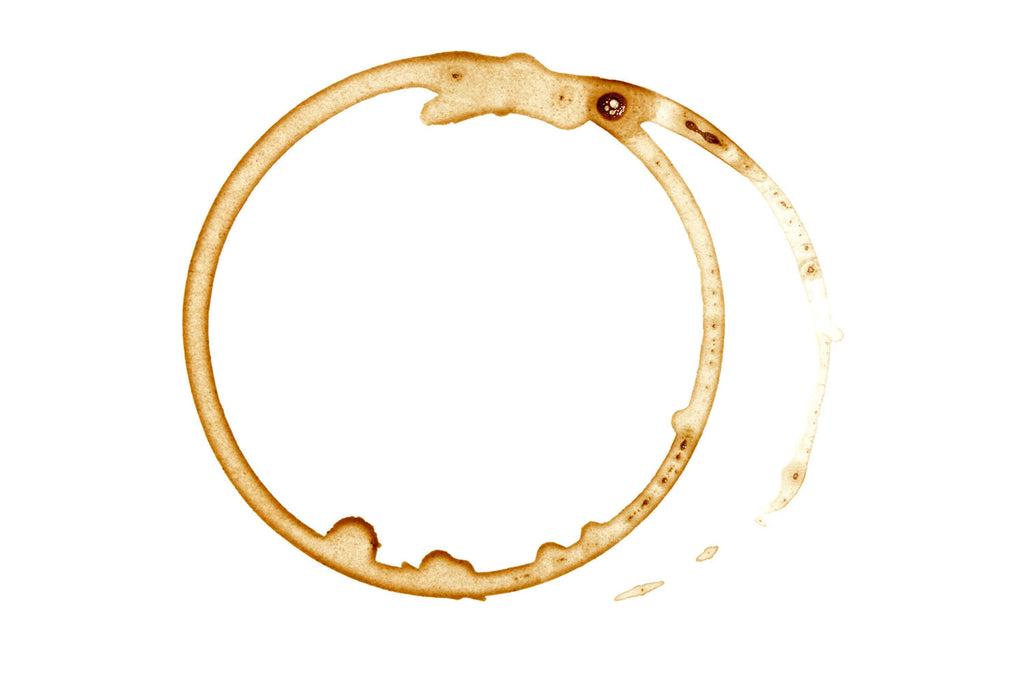
How Much Sleep Do You Need Each Night?

Sleep is one of the most vital elements of our health and wellness. Each night, we get the rest and reset that we need for our bodies and brains to function throughout the day. It’s a rhythm that we simply cannot live without.
There are a lot of myths surrounding sleep. You’ll hear success stories of inventors, millionaires, and other successful people regularly getting only a couple of hours of sleep a night. People advocate for all sorts of different sleeping patterns. But what does your body actually need?
Today, we’ll break down just how much sleep your body needs each night. If you get enough sleep every night, your body and mind will feel fresh and alert, as they should be. Here’s everything you need to know.
Understanding Sleep: A Necessary Ritual
Sleep is more than just a casual rest. There’s a reason why a day of laying down on the couch isn’t the same as a night of sleep. Some incredible, necessary biological functions happen during sleep. By understanding what sleep does for us, we can start to see why it’s so important to prioritize.
Why Do We Sleep?
There are so many reasons why our body needs enough overall sleep, and all of them are crucial for our survival. While sleep isn’t necessarily a matter of life and death every night, your body absolutely requires sleep to be healthy.
We sleep for multiple reasons. The big ones are that it supports our memory, brain health, emotional health, immune system, and hormones.
During deep sleep, your body stores the memories it created that day and discards unnecessary information. Our brain gets rid of harmful toxins. Our nerve cells get organized, and the emotional parts of our brains get active. Our body makes antibodies and immune cells, and it regulates our hormone systems.
That’s a pretty big job for one evening.
What Happens if We Don’t Sleep?
All of the benefits mentioned above trickle down and affect specific aspects of our lives. If you go 24 hours without sleep, your body starts to lose a ton of important functions. You’ll become irritable, your decision-making and judgment will be impaired, you’ll have a hard time remembering things, and your hand-eye coordination suffers.
If you go all the way up to 36 hours without sleep (stage two of sleep deprivation), you’ll have a hard time focusing, and your body will involuntarily go into short 30-second periods of microsleep.
During stage three, which happens after 48+ hours without sleep, you start to hallucinate. The urge to sleep becomes irresistible, you may have hand tremors and uncontrollable eye movements and engage in completely reckless behavior.
You need sleep! Without it, your body simply cannot function well. A regular lack of good sleep can even lead to certain health problems that can change your life.
The Stages of Sleep
So what happens during sleep? Well, there are five different stages of sleep in the sleep cycle. Each cycle lasts between 70 and 120 minutes, so go through this sleep cycle four or five times every night.
During stage one, your body simply transitions from being awake to being asleep. Your brain activity slows just a bit, and you may experience some twitching as you enter stage two.
Stage two is a slightly deeper sleep. Your heart rate and breathing slow down. Your temperature drops and your brain gets less active. Still, it’s considered light sleep.
In stage three (also called “slow wave sleep”), your brain waves slow down into what are called delta waves. All your body parts relax even more as you enter the first stage of what is considered to be a deep sleep.
The deepest sleep stage is stage four, where your brain waves are incredibly slow, your muscles are incredibly relaxed, your body temperature is low, and your heart rate and breathing rate slow dramatically. This is the healing stage where your tissues grow and repair, and hormones such as growth hormones are released to initiate the process of restoring the body’s energy.
Finally, we have stage five, also called rapid eye movement sleep or REM sleep. This is the point in sleep when you have your most vivid dreams, although you can also dream during non-REM sleep (NREM, non-rapid eye movement). As the name suggests, your eyes start to move rapidly behind your eyelids. Your breathing rate and heart rate accelerate, and your brain waves pick up again.
The REM Stage of Sleep
REM is the stage of sleep that helps with memory. Your memories from the day are stored or discarded. Your brain also processes emotions during this time. REM even helps your brain to develop more. But because this stage is so similar to being awake, you’re easy to wake up.
That raises the question: How much deep sleep do we need? Well, your body needs about two hours of deep sleep per night.
How Much Sleep Does the Average Person Get?
Many Americans today do not get nearly enough sleep. It’s estimated that a whopping one-third of Americans get less than seven hours of sleep per night.
However, the data suggest that virtually every person will struggle with sleep deprivation at some point in their life. This mostly affects shift workers who have to work late or overnight shifts at their jobs.
It’s also worth noting that sleep deprivation doesn't simply happen when you don’t sleep for enough hours. You can also suffer from sleep deprivation if you don’t get quality sleep every night.
Sleep Disorders
There are many reasons why a person might not be getting enough sleep. Sometimes, it’s simply because a person chooses to be awake for longer. In other cases, sleep deprivation is a symptom of a sleep disorder.
Sleep apnea reduces your quality of sleep, and insomnia prevents you from falling asleep. But there are also parasomnias — such as night terrors or sleep paralysis — that disrupt your sleep throughout the night.
These are all fairly common disorders, and they can seriously affect your sleep and your health overall.
How Much Sleep Should I Be Getting?
So the big question is how much sleep should we be getting each night. Pretty much any doctor will recommend that adults have a total sleep time between seven and nine hours every night.
Without enough deep sleep, your body cannot recover as it should every night. Getting a good night’s sleep every night is vital.
The Myth of Making Up for Lost Sleep
Contrary to popular belief, you cannot sleep four hours one night and 12 the next and have the two balance out. Lost sleep is lost sleep. If you get a poor night of sleep, you’ll have a harder time functioning optimally the next day, and your health may suffer.
As your sleep debt builds, your brain and body function gets worse and worse. Naps may help to temporarily increase alertness, but they aren’t a substitute for a good night of sleep.
How To Promote Healthy Sleep
So sleeping well each night is important. But how do you get better sleep each night? Well, there are plenty of things you can do to become a better sleeper and get more deep sleep.
Create Healthy Sleep Habits
We are creatures of habit and rhythm whether we like it or not. Our bodies function well when we give them routines. For example, getting on a rigid sleep schedule can help improve our circadian rhythm and internal clocks so that we can feel tired when it’s time to feel tired and alert when it’s time to feel alert.
It’s best to have about an hour each night to wind down and get yourself tired so that you can slip into your sleep cycle quickly each night. Don’t look at screens with blue light before bed, and you’ll have a much easier time falling asleep.
Be Careful With Foods and Drinks
It’s best to avoid eating and drinking close to your bedtime. This is especially true for alcohol and caffeine. They can mess with your sleep cycle, keep you awake for longer, and disrupt your sleep.
Get Active
Exercise during the day can help you feel more tired at night. If you have trouble falling asleep, getting good exercise can expend energy during the day, so you’re more inclined to fall asleep at bedtime.
Make Your Sleeping Space Comfortable
Having a comfy bed can decrease your likelihood of having difficulty sleeping. So make sure your bed is optimized for sleeping. For example, mattress pads can help you get comfy and reduce your body temperature for better sleep.
You may also want to get a pillow that better supports your head and neck, so your neck doesn’t get uncomfortable each night.
Healthy Sleep Every Night
Sleep is essential for your physical health, mental health, and overall wellness. Without a good night of sleep each night, you won’t be operating at your best. So take the right steps and make sure that you get enough sleep each night for a better life and a better you.
Sources:
1 in 3 adults don’t get enough sleep | CDC
Sleep Deprivation: What It Is, Symptoms, Treatment & Stages | Cleveland Clinic
What is REM Sleep and How Much Do You Need? | Sleep Foundation




